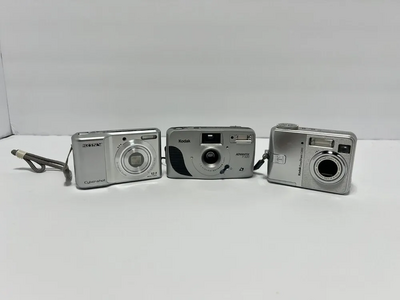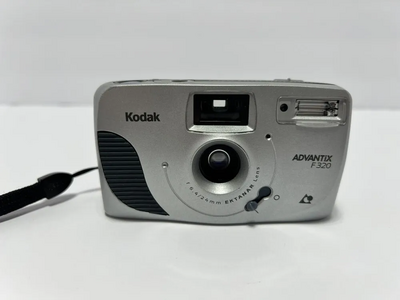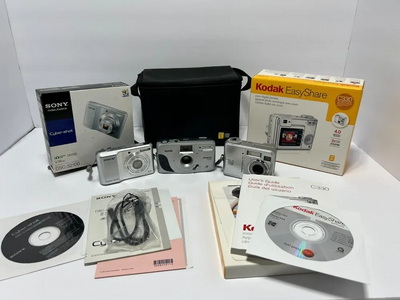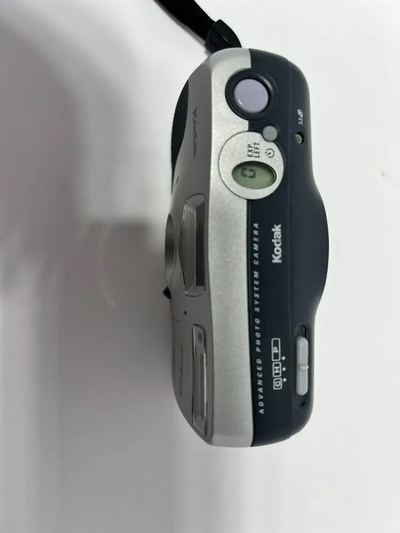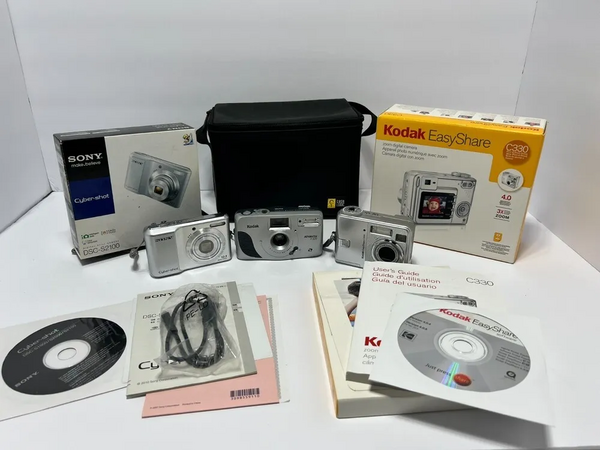
Sony DSC-2100
| Brand | Sony 1998 |
| Model | DSC-2100 |
| Released Year | 1998 |
| Type | Digital Cameras |
| Series | Cyber-shot |
| Color | Silver |
| Optical Zoom | 3x |
| Status | Discontinued |
Quick view
Overview
The Sony DSC-2100 is an early model in the Cyber-shot series, launched in 1998 as one of the pioneers in compact digital photography. It features a CCD image sensor capable of capturing images at a resolution of approximately 2 megapixels, suitable for basic digital imaging at the time. The camera includes an optical viewfinder and a fixed lens with moderate zoom capabilities, enabling versatile framing. Images are stored on internal memory with limited capacity or on removable storage media, depending on user configuration. The unit incorporates standard connectivity options of its era for image transfer, such as USB and proprietary cables. Despite its early technology limitations, the DSC-2100 laid the groundwork for Sony's future digital imaging innovations.
Specifications
| Series | Sony Cyber-shot |
| Type | Digital SLR |
| Digital Zoom | 3x |
| Screen Size | 3 |
| Color | Silver |
| Model | Sony DSC-2100 |
| Connectivity | USB, proprietary transfer cables |
| Optical Zoom | 3x |
| Charger Included | No |
| Battery Type | AA |
| Sensor Type | CCD |
| Effective Resolution | Approx. 2 megapixels |
| Lens | Fixed lens with limited optical zoom |
| Storage Media | Internal memory and removable media |
| Power Source | Rechargeable battery |
Images
Key Advantages
The DSC-2100 offers a compact and lightweight design that was convenient for everyday use. It was among the first to integrate digital imaging technology into a consumer-friendly Cyber-shot series. The camera delivers reasonable image quality for its time, with 2MP resolution supporting standard photographic needs. It provides user-friendly controls and a simple interface suitable for novice photographers. The inclusion of removable storage options allowed users to manage their image files effectively. Its build quality and brand reliability helped establish trust in digital camera technology during its early market presence.
Limitations
With only a 2-megapixel sensor, the image resolution is low by today's standards, limiting print and display size. The fixed lens zoom is limited in range, restricting photographic versatility. Storage capacity is minimal, requiring frequent media swaps or downloads. The camera lacks advanced exposure and focus controls available in later models, reducing creative options. Battery life is relatively short, necessitating frequent recharges or replacements. Connectivity options are limited to early interfaces, which may pose compatibility challenges with modern devices.
FAQ
What is the image resolution of the Sony DSC-2100?
The Sony DSC-2100 features an approximately 2-megapixel CCD image sensor.
Does the DSC-2100 have a zoom lens?
Yes, it has a fixed lens with limited optical zoom capability.
What type of storage does the DSC-2100 use?
The camera uses internal memory and supports removable storage media for image saving.
Is the Sony DSC-2100 still available for purchase?
No, the DSC-2100 was discontinued and is no longer in production.
What year was the Sony DSC-2100 released?
The Sony DSC-2100 was released in 1998.
What are the connectivity options for the DSC-2100?
It offers USB and proprietary cable connections for transferring images to computers.
Is the Sony DSC-2100 suitable for professional photography?
Due to its basic features and low resolution, it is best suited for casual or entry-level photography rather than professional use.
Disclaimer
The content on is provided for general informational purposes only. We do not guarantee the accuracy, completeness, or reliability of any information, specifications, or visuals presented on the site.
is not responsible for any content, images, or data uploaded or shared by users. Users are solely responsible for the content they submit.
We may include links to third-party websites for convenience. We do not endorse or take responsibility for the content or policies of any external sites.
Use of the site is at your own risk. Always verify critical information independently before making decisions based on content from this website.

